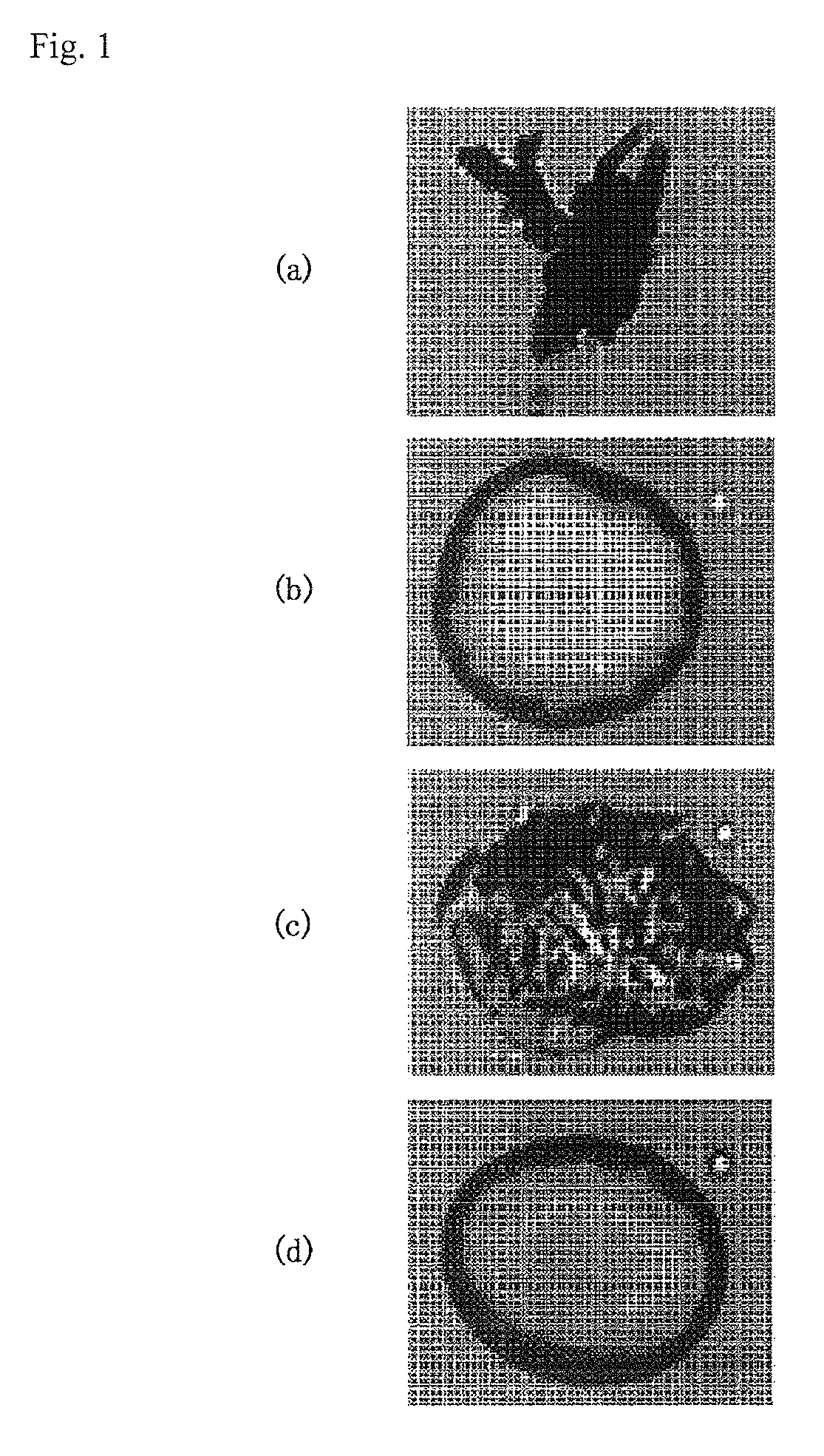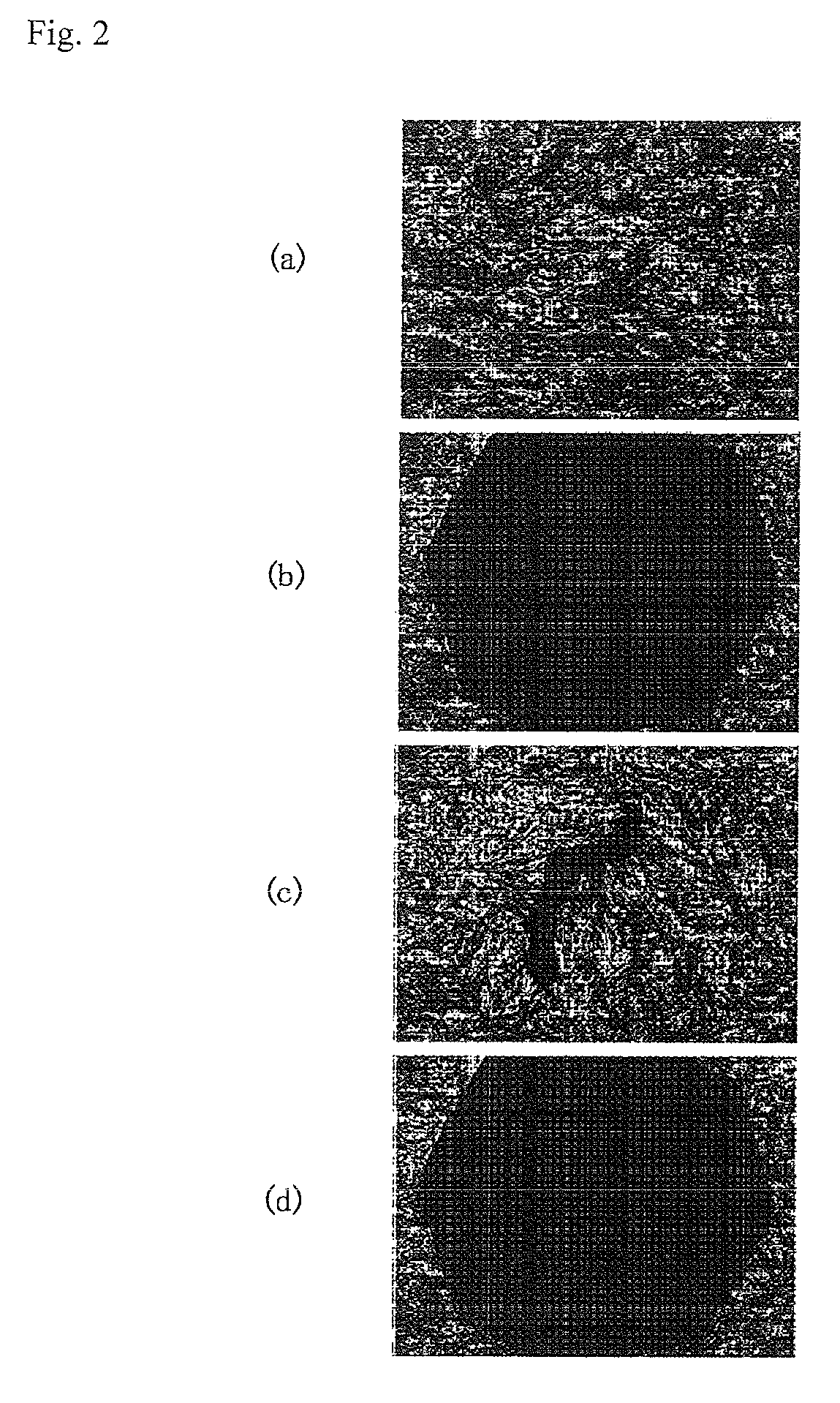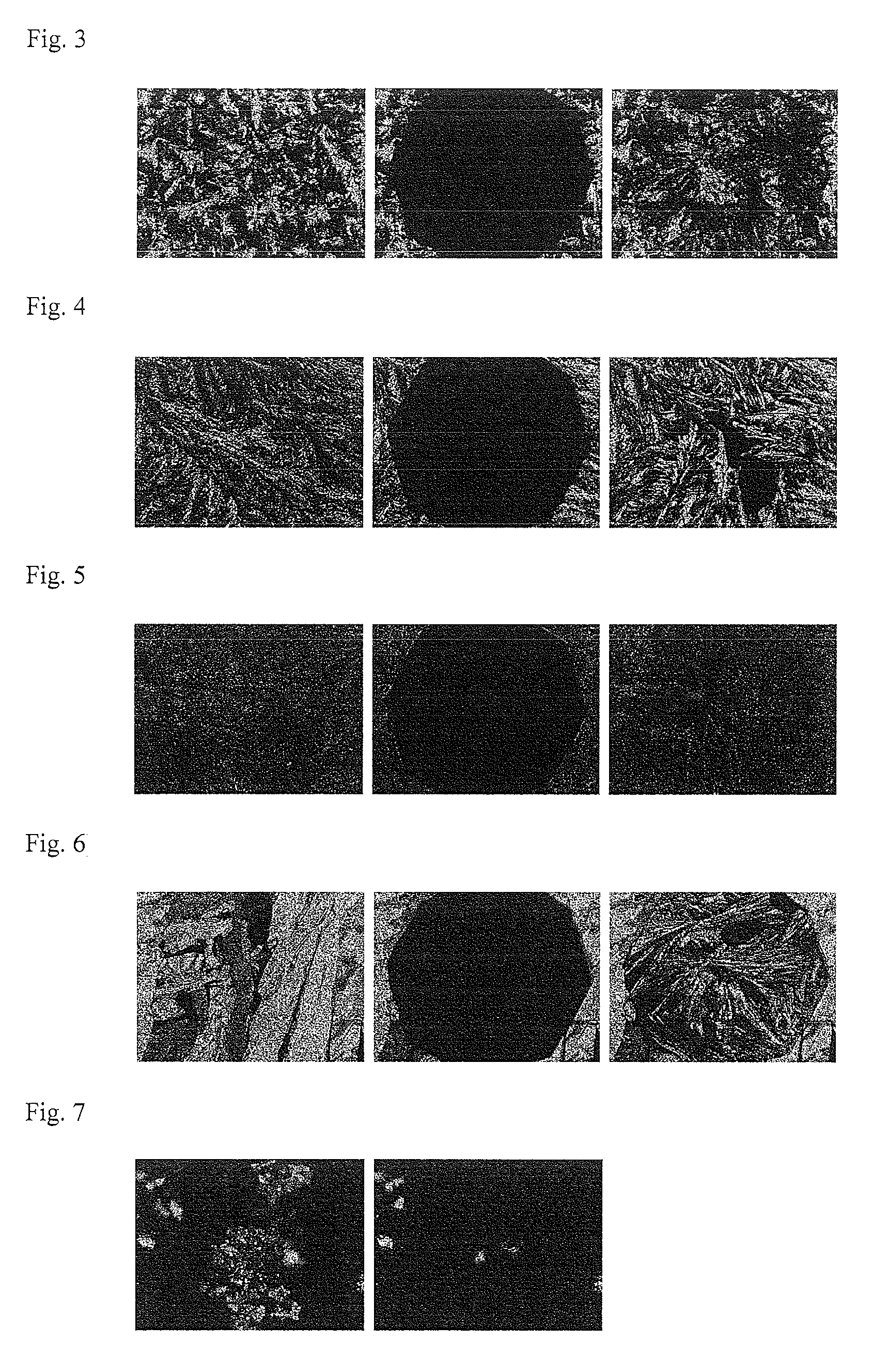Photosensitive azobenzene derivative
a technology of azobenzene and derivative, applied in the direction of non-macromolecular adhesive additives, organic chemistry, chemistry apparatus and processes, etc., can solve the problems of insufficient free volume and difficulty in principle in restoring the material to its original state after light exposure, and achieve the effect of efficient production
- Summary
- Abstract
- Description
- Claims
- Application Information
AI Technical Summary
Benefits of technology
Problems solved by technology
Method used
Image
Examples
example 1-1
Synthesis of Compound A1B1 (Intermediate 1)
[0108]40 mL of distilled water and 10 mL of concentrated hydrochloric acid were added to 4-aminophenol (4.37 g, 40 mmol). After the addition of a solution prepared by dissolving sodium nitrite (3.31 g, 48 mmol) in 10 mL of distilled water to the mixture while stirring the mixture at 0° C., the resulting mixture was stirred at 0° C. for 15 minutes. The resulting solution was added to 60 mL of an aqueous solution of 3,5-dimethylphenol (4.89 g, 40 mmol) and 14 g of sodium hydroxide, and the mixture was stirred for 16 hours. The resulting solution was made acidic using hydrochloric acid under cooling, and a brown precipitate was filtered off. The resulting solid was purified by silica gel column chromatography (eluant: hexane:chloroform=1:1) to obtain Intermediate 1 shown below (brown solid, 6.50 g, yield: 67.1%).
[0109]
[0110]Intermediate 1 was subjected to 1H NMR analysis and 13C NMR analysis to determine the structure.
[0111]TLC: Rf=0.50 (Ethyl...
example 1-2
Synthesis of Compound A1B1-C12 (Azobenzene Derivative 1)
[0116]50 mL of N,N-dimethylformamide (DMF), 1-bromododecane (15 g, 60 mmol), and potassium carbonate (13.8 g, 100 mmol) were added to Compound A1B1 (Intermediate 1) (2.42 g, 10 mmol), and the mixture was stirred at room temperature for 16 hours. After confirming disappearance of Intermediate 4 by thin-layer chromatography (TLC), distilled water was poured into the mixture under cooling, following by extraction with n-hexane. The organic phase was washed once with distilled water, and washed once with a saturated sodium chloride aqueous solution.
[0117]The organic phase was dried over anhydrous magnesium sulfate. After removing a solid by filtration, the solvent was evaporated under reduced pressure. The resulting orange solid was purified by silica gel column chromatography (eluant: hexane:chloroform=7:3) to obtain photosensitive Azobenzene Derivative 1 (orange solid, 4.61 g, yield: 79.6%).
[0118]
[0119]Photosensitive Azobenzene D...
example 1-3
DSC Measurement of Compound A1B1-C12
[0126]The thermal phase transition temperature of Compound A1B1-C12 was determined by differential scanning calorimetry.
Cr 65 Iso, Iso 53 Cr
PUM
| Property | Measurement | Unit |
|---|---|---|
| wavelength | aaaaa | aaaaa |
| wavelength | aaaaa | aaaaa |
| wavelength | aaaaa | aaaaa |
Abstract
Description
Claims
Application Information
 Login to View More
Login to View More - R&D
- Intellectual Property
- Life Sciences
- Materials
- Tech Scout
- Unparalleled Data Quality
- Higher Quality Content
- 60% Fewer Hallucinations
Browse by: Latest US Patents, China's latest patents, Technical Efficacy Thesaurus, Application Domain, Technology Topic, Popular Technical Reports.
© 2025 PatSnap. All rights reserved.Legal|Privacy policy|Modern Slavery Act Transparency Statement|Sitemap|About US| Contact US: help@patsnap.com



